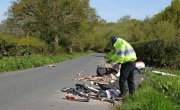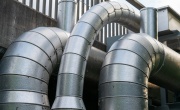‘Ground-breaking’ report delves into contents of Welsh bins
WRAP Cymru has published the results of its waste analysis project using data from all 22 Welsh councils, which shows that more than a third of material in the country’s residual waste stream is organic matter.
The survey, which was performed by environmental consultancy Resource Futures, was conducted in order to inform authorities on how to achieve ambitious recycling targets set out by the Welsh Government. The government’s waste strategy document, ‘Towards Zero Waste’, outlines a recycling target of 70 per cent by 2025, with further aims to become zero waste by 2050. In the 12 months to December 2015, Wales recorded a UK-leading recycling rate of 59 per cent, which surpassed the government’s interim target of 58 per cent by 2015/16.

To achieve even greater rates, however, headline findings from the new report indicate that authorities ought to concentrate efforts on diverting organic waste from the residual stream, with research revealing that putrescible material makes up 33.6 per cent of the total waste stream – 16.4 per cent food, 14.6 per cent garden waste and 2.6 per cent ‘other organic’ waste.
Paper and card also make up a large portion (17.9 per cent). Of this, 8.4 per cent was recyclable paper, 6.2 per cent recyclable card and 3.2 per cent non-recyclable fibres.
The remainder was classified as ‘other combustible’ waste (11.56 per cent) or ‘other non-combustible inert waste’ (8.5 per cent).
The research aims to set a baseline for ‘significant waste streams’ produced by Wales as a whole as well as by individual local authorities and to help achieve targets by ‘underpinning waste strategies’.
The results were published in the report ‘National Compositional Analysis in Wales’ on behalf of the Welsh Government, which commissioned the project, and WRAP Cymru.
To compile the report, data was obtained for both winter and summer in 2015 from all local authorities in Wales using several methods including extensive fieldwork and desktop research. Fieldwork included the compositional analysis of kerbside collected, residual, food and bulky wastes using street level sampling.
“Ground-breaking waste analysis project”
Agnes Chruszcz, Senior Consultant at Resource Futures, said: “This is a ground-breaking waste analysis project that the Welsh Government has led on. Understanding what future waste strategies can and should be able to deliver can only be achieved through detailed knowledge and interpretation of material stream data.
“Delivering this project meant we had to undertake significant sampling for the main components of the municipal waste stream to really establish baseline data for the authorities to use. Wales is currently the home nation leader in terms of recycling performance and preparatory work such as this waste analysis project means it is in good shape to achieve its ambitions.” 






